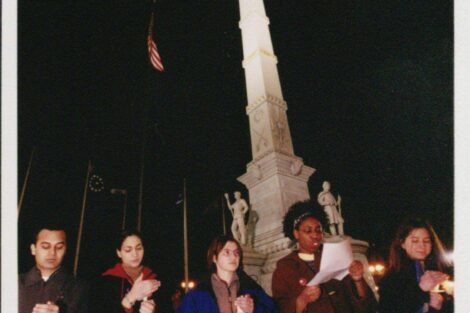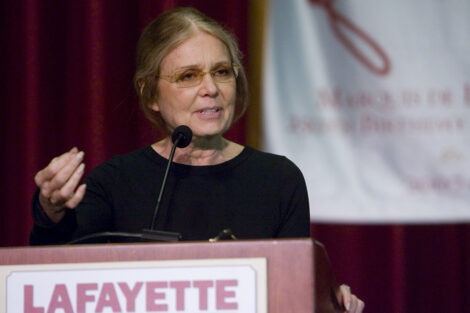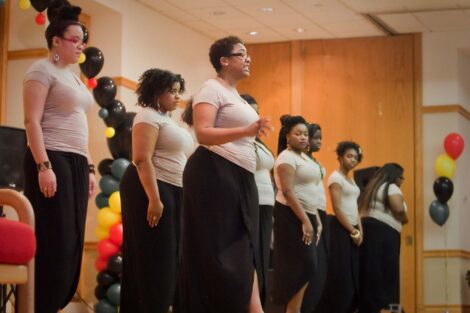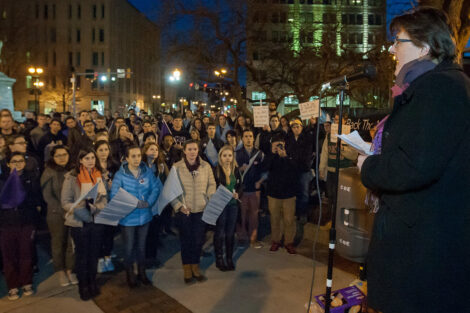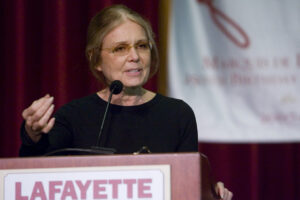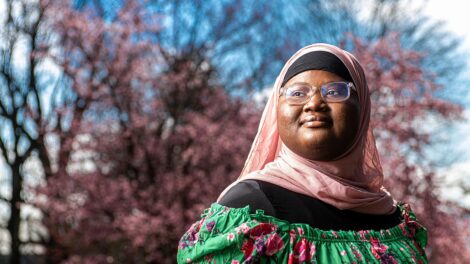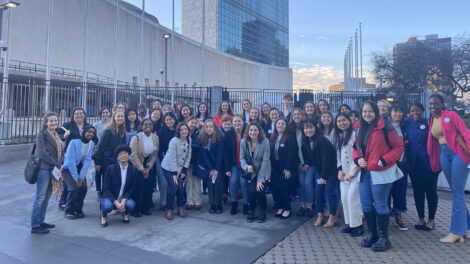At Lafayette College and across the country, celebrations of Women’s History Month begin this week
By: Madeline Marriott ’24
Starting March 1, Lafayette College and the Gender and Sexuality Resource Center (GSRC) in the Office of Intercultural Development (OID) will celebrate Women’s History Month.

Members of Lafayette College’s first co-ed class.
The month finds its beginnings in the 1970s when a California school district began celebrating a “Women’s Week” with an essay contest. This caught on in communities across the nation, and in 1980, President Jimmy Carter declared the week of March 8 as “National Women’s History Week.” Just six years later, Congress expanded this decree to the entire month of March thanks in large part to advocacy from the National Women’s History Project.
The goal of the month is to celebrate women’s often underappreciated and/or unrecognized contributions to American history, culture, and society. The national theme for the 2023 month is “Celebrating the Women Who Tell Our Stories.” According to the National Women’s History Alliance, this theme seeks to focus on past and present women in all forms of media and storytelling.
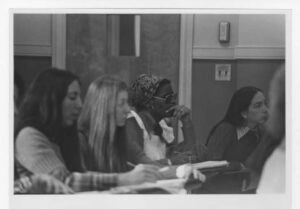
Women in class in the 1970s.
The GSRC hopes to bring together discussions of the past, present, and future in the month’s celebrations. “Women’s History Month is a time to reflect on the progress made by woman-identified people throughout history and to recognize the contributions of women and gender diverse individuals in shaping our society,” says Tommy Lee, assistant director for gender and sexuality. “It’s a time to celebrate achievements made toward the equality of all genders, and it’s also a call to action for the present and future.”
“It’s just as much about past history as it is about creating and advancing a new history,” Lee says.
Specifically, Lee wants this programming to focus on highlighting some of the most marginalized voices within the community. “With OID, when we think about our events and guest speakers, we really want to be very specific that we intentionally amplify trans women and women of color in the discussions that we carry,” Lee says.
“Trans women have been marginalized and excluded from historical narratives for too long, and including their stories and achievements is critical to promoting a more inclusive and just society,” Lee continues. “Amplifying the voices and stories of trans women also helps to address the unique challenges and forms of discrimination that they face.”

Black Women’s Support Group, 1995-1996
Lee goes on, “Women of different races have faced distinct forms of discrimination and oppression, and their stories and achievements provide critical insights into the intersections of gender and race in shaping our society. Recognizing the contributions of women of all races is essential to promoting a more equitable and just society.”
Fatimata Cham ’23, president of the Lafayette chapter of Girl Up, echoes Lee’s sentiment. “Often those in marginalized communities hold the solution to the problems we are trying to solve, so it is really important that we continue to do [center them],” she says.
The GSRC’s month of official programming will kick off Friday, March 3 with the Gender Equity Expo at noon in Farinon College Center. The expo will be an opportunity for students to “think about gender equity progress and then connect with different campus and community organizations,” Lee says. “There’ll be opportunities to win prizes, celebrate free giveaways, and really launch this month and get a lot of buzz out there.”

LGBTQ Equality Rally, 2013
Leading up to Transgender Day of Remembrance on March 31, the GSRC will have a week of specific programs focusing on the LGBTQIA+ community and its contributions to advancing gender equity. More information about the wide array of programming from the GSRC and other campus organizations can be found on its webpage, which will be updated continuously throughout the month.
Lee believes this month’s events are an opportunity for all members of the Lafayette community to come together no matter their gender identity.
“When we promote and advance gender equity—human rights for people of all genders—it makes a more equitable society that we all benefit from. And I think it’s really important that if we don’t identify as a woman, we use this opportunity to be allies to those who do and step up to think about ways to make our school, particularly, but also society as a whole, safe and inclusive for women and gender diverse people,” Lee says.
Cham agrees. “I think that we don’t know everything about each other and our lived experiences, so it is really important that we listen and hold space,” she says.



